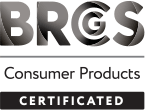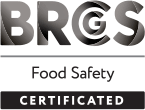Olive oil has long been known for its unique qualities, finding extensive use across various applications. In fact, the first recorded extraction of olive oil reaches back as early as 6000BC, where evidence suggests that Chalcolithic Mediterraneans extracted oil from the olives and stored it in clay vessels.
Since then, olive oil has become a mainstay of the food industry, thanks to its rich texture and earthy tones. It has also seen wider use as Mediterranean cooking becomes more popular worldwide. Olive oil has been identified as a great source of monounsaturated fats and omega oils, lending it tangible health qualities as well as being a practical ingredient. It also contains small amounts of Vitamins E and K.
Spurred along by premium packaging and higher costs on the supermarket shelves, Extra Virgin Olive Oil (EVOO) is the gold standard of olive oils in the catering industry, but what makes it the go-to choice for chefs across the globe and how is it different to its counterpart grades?
The system for grading olive oil is dictated by the International Olive Council, the oil must achieve a stringent set of standards in order to reach this grade. These benchmark qualities imbue EVOO with qualities that other grades do not possess – if the oil doesn’t meet each criteria laid out, it cannot be labelled or sold as Extra Virgin.
The first major difference to note is in the production. EVOO is cold-pressed, protecting the natural content from exposure to heat which would otherwise compromise its flavour and texture. Olive oil is particularly sensitive to temperature, degrading quickly when temperatures rise. Adding heat to the process allows extracters to get more oil from the olive but also harms the nutritional value and delicate flavour of the fruit. Other grades of the oil are subject to heat treatment and refining or even extracted chemically which, while increasing the amount of oil extracted, can harm the product’s quality.
Olive oil grade is not affected by the variety of olive used, it is determined by the process used to extract the oil and the level of any additives used. EVOO is characterised by its hands-off production style, with the olive fruit kept as close to its natural state as possible through the oil harvesting process.
A second major benefit to EVOO in cooking is the flavour and appearance. The cold-pressing at a temperature of no more than 27 degrees celsius ensures that the earthy notes and peppery tones remain intact through its extraction. As an unrefined oil, it also has a deeper, richer colour that sets it apart from other oil grades. The colour of olive oil is dictated by the amount of chlorophyll in the fruit at the time of pressing, some of which can be lost if exposed to heat during this stage of production.
Thirdly, to be classed as EVOO, the oil must have an oleic acidity level below 0.8%. Virgin oil can have an acidity level of up to 2%, creating more bitterness in the taste. Additionally, studies have found that when using this higher grade of olive oil in cooking, the overall levels of beneficial compounds and antioxidants increase.
While research is still ongoing, it’s thought that Extra Virgin Olive Oil can also protect against cardiovascular disease when regularly included in the diet, due to its numerous properties that include protection against inflammation and protection of LDL particles from oxidative damage.
EVOO is chosen over other grades of olive oil due to the combined benefits it brings to both food and health applications. The specific extraction methods required to meet the EVOO grade allow it to keep many more of its natural qualities intact, which combine for a richer taste experience while building on the renowned health benefits of the oil.
Kerfoot offers a wide range of olive oils to match various grade requirements and applications, including EVOO, and delivers refined and specialty oils that meet the growing requirement for responsible harvesting and sustainability. The company uses its industry knowledge and experience to not only source and supply oils from all over the world but to also manufacture niche oils and formulate bespoke oils to meet customers’ needs.












